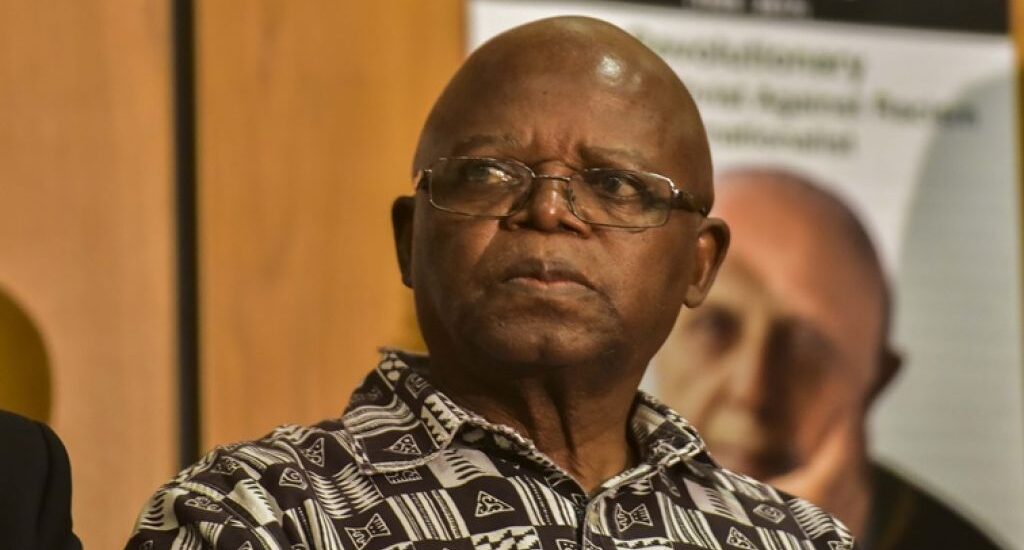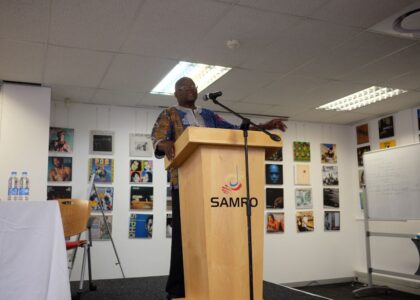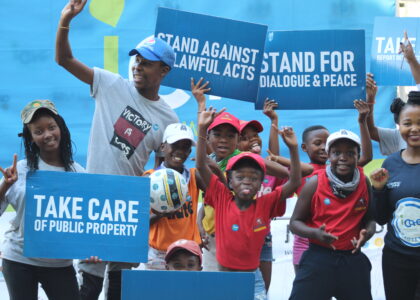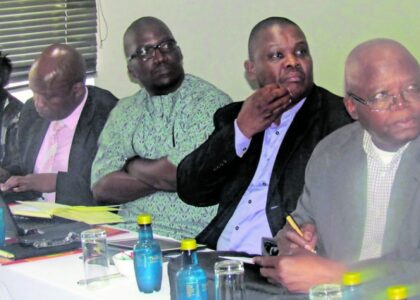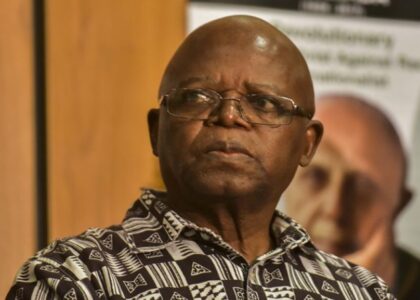08/04/2019
For an election in which cleaning up government is the central issue for the 48 parties contesting the May 8 national polls, there’s a lot of political mud being thrown. All the political parties claim to be best suited to wipe away the country’s ripe reputation for cronyism, private use of public resources, bribery, and state capture. Yet they continue needling each other over ethical lapses rather than focusing on promoting the policies they’d pursue if elected. Voters are lamenting: Who is going to restore trust in government? Who is going to clean up government as political leaders point fingers at each other with no tangible ethics plans. Lest we forget that in 1994 President Nelson Mandela decried corruption, conspicuous consumption, greed, self-enrichment, dishonesty, bribery, sexual abuse of women and children, drug trafficking and disrespect for others. Today we would add state capture and into the mix. Millions of people, more so than I can ever remember, are going to the polls with the issue of corruption on their minds, thanks to the slew of commissions dealing with a variety of ethical lapses. The many commissions underway have brought into sharp focus the unquestionable absence of standards and values that we believed were the hallmark of the first few years of our democracy. Current events in our country show that people are starting to wake up from the slumber of corruption. They are demanding better governance. We need only to look at the headlines of recent scandals and indignities that have comprised the integrity of our elected officials to recognise the need for better governance and oversight. Voters are saying we have had almost three decades of electing our leaders and every time we hold elections, a few of them stand out as promising individuals, but almost all of those we elect are just experts in lip service. Nothing in our government changes, the politicians win but the people never do. As a result, the 6th administration is going to be taking over with a cloud of previous scandals looming overhead. There is a dramatic and immediate need to return to fundamental ethics. Of course, for some, ethics can seem obscure, a philosophy debated by academics with little practical significance, tucked away between codes of conduct and social responsibility, far from decision-makers concerned with political power. Yet at the beginning of our hard earned democracy there was a sense of decency, a dose of discretion, an unobstructed view of right and wrong, an instinct about acceptable boundaries. But almost without notice, it all has been eroded. Those who have warned of the deterioration, were heckled and called fanatics and zealots. But just because the messenger is mad, it doesn’t follow that the message is crazy. Let’s face it – no one is without flaws. Perfection only comes after death. But leadership requires sacrifice, the willingness to subordinate one’s own desires and needs for the good of the people one serves. It is a pity that the stress of living with capricious leaders who lack integrity continues to destroy South Africa’s reputation and the civic culture. It also seems to be doing an effective job ravaging the national government and citizens’ trust. We can continue to lower our expectations and standards, or declare war on corruption. Certainly, this country is better than the cesspools in which it current swims. That is why the Moral Regeneration Movement developed the Charter of Election Ethics to help voters to elect candidates who are ethical, principled and competent. Through the charter, we are asking voters to think beyond campaign promises and to focus on the bigger picture. Whilst the first general election somewhat envisaged a utopian society, 25 years of democracy have unearthed the diversity of interests among voters. South African voters are savvier. Voting patterns no longer follow rigid ethnical or racial lines. Twenty-five years into our democracy the political landscape has both changed and remained the same. What has changed? The vote is no longer a means to remove an oppressive apartheid regime as was the case in 1994. It has assumed broader proportions; more political parties are contesting the election; a substantial cohort of young voters has emerged; voting patterns are no longer rigidly along racial or ethnical lines and the number of voters has increased significantly, peaking at more than 26 million. In contrast, certain realities have remained the same or have only changed at a snail’s pace. Gap between the rich and poor; disparity in terms of service delivery between the dominant social classes and the underclass; differences in the provision of quality education between the wealthy and poor communities; unemployment, especially among young people and most of these factors have a huge influence on the perceptions and decisions of voters. So, how are we going to arrest the ethical decline of the government while restoring citizens’ overall trust in elected leaders? Through training to encourage ethical behaviour. Leadership development should include an ethical construct that promotes the importance of becoming a purpose-driven leader. At its core, successful, ethical leadership is based on elemental ingredients of deep honesty, courage, moral vision, compassion and care, fairness and deep selflessness. One cannot overemphasise the importance of identifying ethical leaders – well trained, experienced and educated in matters of good governance. Popularity cannot be the main criterion for electing a candidate. George Orwell hit the nail on the head when he said: “A people that elect corrupt politicians, imposters, thieves and traitors are not victims but accomplices.”
Written by MRM chairperson: Father Smangaliso Mkhatshwa
MRM suggests a two-pronged strategy:
The immediate challenge is to restore and maintain the security of residents in the affected areas and to proactively extinguish the fires before they explode. Government departments led by Home Affairs must make our porous borders more watertight; as far as it’s humanely possible. An important element is also to tighten up the procedure of immigration and to exercise zero-tolerance against corrupt officials so that thousands of illegal immigrants don’t find it easy to get a South African citizenship or travel documents. MRM suggests that experienced interdisciplinary mediation organisations, interfaith leadership and generally neutral people must drive long-term solution. Through its Charter of Positive Values, the MRM can make a valuable and permanent contribution. Linked to this is the need for a national campaign to promote values of tolerance, peaceful coexistence, respect for human dignity, fairness and love for Africa and its entire people. mThe reaction of the international community through the xenophobic attack is extremely worrying. It means that SA must redouble its effort to normalise the situation in order to regain the confidence of the international community in our country. The Moral Regeneration Movement believes that the problem is everybody’s business. With our much-cherished philosophy of Ubuntu, together we can overcome this scourge. ONE CAN ONLY SIGH, “CRY THE BELOVED COUNTRY”
Written by: Father Smangaliso Mkhatshwa (chairperson of the MRM)


